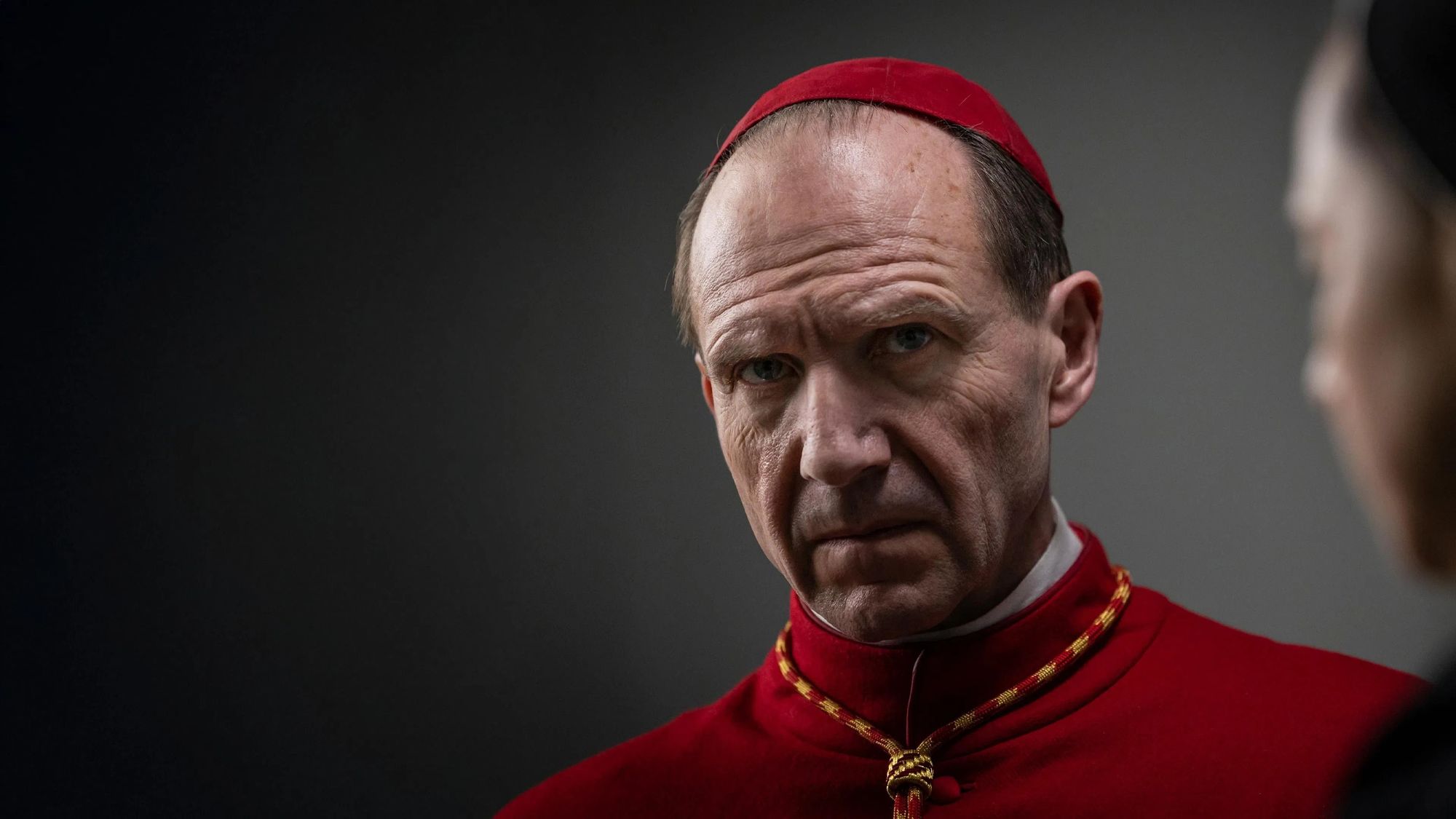Conclave Breaks Down the Doors to the World's Most Secret Act
Is it a papal conspiracy thriller? A study of ambition? A comment on the rigid nature of our institutions? Yep, Conclave is a sublime blend of all three.
good.film
7 months ago

Share

We're skipping a full Weapons guide this week. Partly because it veers into horror (and after Together last week, we don’t want you thinking we’ve gone full scream queen), and partly because - while it nods to themes like alcoholism, teacher–parent boundaries, and community safety - it doesn’t explore them deeply enough to qualify as impact entertainment in our book.
But that call got us thinking - it’s a good chance to share what we mean by “impact entertainment.” For us, it’s not just documentaries or even the filmmaker’s “why.” It’s about you, the audience. Does the film spark conversation? Deepen your understanding of something like grief, family, or love? Give you something worth talking about afterwards?
With that in mind, we’re turning our attention instead to Conclave - an acclaimed drama we missed when it first released. Now on streaming, it’s the perfect time to explore what’s been hailed as "immaculate... a godsend for audiences who crave intelligent entertainment."
Who Directed Conclave? Edward Berger
Who Stars in it? Ralph Fiennes, Stanley Tucci, John Lithgow, Isabella Rossellini, Carlos Diehz
Where Can I See it? Conclave is streaming now for subscribers on Amazon Prime Video, and is available to buy or rent on other streaming platforms.
What's the premise of Conclave?
It's essentially an election story - the Pope has passed away, and Cardinal Lawrence (Ralph Fiennes) is tasked with managing the ancient (and massively secretive) ritual of electing a new one. Rather watch paint dry? Think again. Somehow, Swiss-Austrian writer-director Edward Berger (All Quiet on the Western Front) has built a riveting procedural that plays more like a high-stakes thriller than a papal-shuffling story.
There's two big reasons for this, and the first is timing. Just a few months after Conclave was released, the real Pope Francis died of cardiac arrest, triggering the real-life conclave in May 2025 that led to the election of Pope Leo XIV. It was the first conclave in 12 years (and only the third since 1978!), lending the film an incredible ripped-from-the-headlines timeliness.
The other reason is the genuine tension that Berger manages to build as the story unfurls into a conspiracy that's almost more Mission Impossible than Roman Catholic church. Just because these Cardinals are holy men doesn't mean they're not also, simply, men - driven by their own hidden (and not so hidden!) temptations.
How accurate is Conclave to the real thing?
Smoke and string and incantations... hey, the real-life papal conclave is already stranger than fiction. But that doesn't mean the team behind Conclave took liberties just for the fun of it. The filmmakers went hard to recreate the top-secret ritual, pouring thousands of hours of research and meticulous attention into real world details (like, say, the exact shade of red and gold threads that make up the cord suspending their distinctive 'pectoral cross').
So when we see the cardinals sequestered without their devices, dark shutters rolling down the windows, guards at every entrance, and the symbolic grey and white smoke signals pouring solemnly from the Sistine Chapel, the details aren’t just Hollywood. They’re exact replicas of proper Vatican protocol, embedded over centuries.
It probably goes without saying that filming wasn't allowed inside the Vatican. The production team built a full-scale replica of the jawdropping Sistine Chapel interiors at Rome’s legendary Cinecittà Studios. The process took about ten weeks, covering everything from the lavish types of marble and carpeting used in the real location down to the kinds of hooks installed on the doors. (All that attention to detail paid off: the film was nominated for eight Academy Awards, including production design, costume design and best picture).
Okay, so it looks accurate, but you're probably wondering if Conclave nails the actual goings on... to which we'd say, Is the Pope Catholic? While some of the truly inner-sanctum scenes had to be imagined (like how the deceased Pontiff is covered before his body is whisked away), the process of the actual conclave voting is accurate. Director Edward Berger and screenwriter Peter Straughan interviewed willing members of the clergy, and carefully studied public records, to faithfully capture the conclave's solemn inner workings. The result is the closest we'll ever get to really being there.
What does Conclave say about ideas like power and ego?
Beyond the gorgeous costumes, what really hooked us about Conclave is its sharp exploration of power and ego in leadership - especially when these holy men are supposed to rise above such human frailties. Power is messy, ambition is tangled - and we’re often drawn to leaders who seem like they don’t want the role.
Why? Because it hints at humility and a deep awareness of the heavy burden leadership carries. But as Conclave explores, in that sort of environment how do you run for leadership - or lead - without showing that you actually want the crown?
Cardinal Lawrence, played superbly by Ralph Fiennes, embodies that paradox. He habitually shrugs off the idea that he should be elected. Instead, he wrestles with shaken faith and a refusal to be anointed - even though his colleagues push back with, “Ah, but that’s exactly why you should be Pope.” Alone in front of his mirror, Lawrence mutters, “You’re a manager,” giving us a quiet, wry glimpse into his internal tug-of-war between humility and ambition.
And then there’s the power play with Cardinal Tremblay (John Lithgow). A subtle accusation of sabotage crystallises how even Lawrence - despite his denials - might secretly crave power. But think about it this way: after devoting his life to the Church, doesn’t he have a duty to lead it - especially if the alternative is someone who might corrupt it?
What's the Conclave 'twist" I keep hearing about?
Without giving it away, yes, there's a huge twist at the end of Conclave that some have applauded and others felt blindsided by. It centers on one Cardinal's medical history and introduces an entirely new theme to the film.
In our eyes, it's a crucial inclusion. As it invites us to ponder concepts like identity, and how the Catholic church continues to slowly - very slowly - modernise itself to remain relevant to society's changing social norms.
We'd argue that Conclave doesn't sensationalise this character's reveal. Instead, it charges the film's final moments and pushes boundaries on what leadership and true faith mean.
What’s the takeaway from Conclave?
What do we really get with Conclave then - a political drama? Sure. But set aside the robes and rituals, and it’s actually a (razor-sharp) meditation on human nature, whether it takes place in the Holiest of places or not.
Berger and Straughan are probing timeless themes here: the wrestle of faith, the pull of ambition, the corrosion of greed. They come in many guises. And you’ll find yourself mulling over the questions they pose long after the white smoke clears.
CONCLAVE is streaming now for subscribers on Amazon Prime Video, and is available to buy or rent on other streaming platforms.
WEAPONS is out now in Australian cinemas. Get discount movie tickets to see it for less at Event, Village and Hoyts Cinemas right here. We donate $1 from every Good Tix sold to Australian charities.

